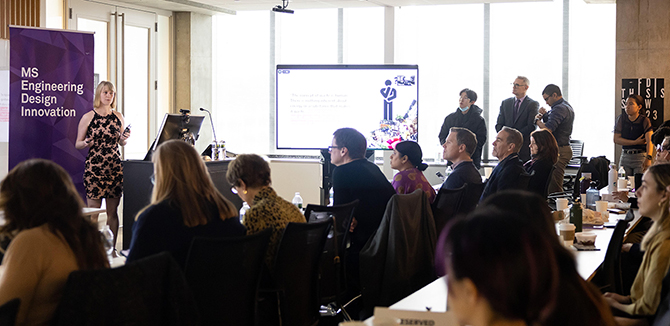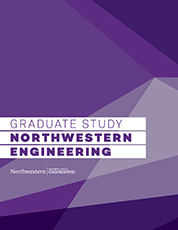Keeping Furniture Out of Landfills
Autumn Basinger’s (EDI ‘23) thesis project aims to create a digital community to keep furniture from winding up in a landfill.

To Autumn Basinger (EDI ‘23), the concept of waste is entirely human.
Things that once held tremendous value to a person can quickly become the discarded item on the curb waiting for the trash hauler.
Basinger questioned this idea of waste and how to change the mindset about it for her thesis project in Northwestern's Master of Science in Engineering Design Innovation (EDI) program. Her answer was Uplab, a digital community hub that aims to inspire and enable people to reuse furniture to give it new value and keep it out of landfills. The goal is to provide tools that can help people source, visually reimagine, and ultimately transform used furniture.
“Nothing is inherently waste," Basinger said. "It becomes so once we cease to imagine and implement its use."
Basinger developed the concept for a furniture upcycling community by scaling down from her overall concern about waste. Her desire was to find an effective way to address the question: Why are humans so quick to throw away what can still provide value?
Furniture became the foundation for her effort. The data shows the need. More than 9.7 million tons of furniture are discarded as waste each year in the United States alone, according to the US Environmental Protection Agency.
“The truth is that it’s often just easier to throw something away than to find a new use for it,” Basinger said. “Upcycling in particular came about through research as an opportunity for the end consumer to participate in waste reduction.”
Basinger had heard the expression, “One man’s trash is another man’s treasure.” She set her sights on making it easier for that transformation to happen.
Uplab’s main goal is to create a community where people can discover furniture someone would otherwise discard. From there, the concept uses artificial intelligence to inspire would-be upcyclers to reimagine what a piece could look like and provides practical tutorials that enable even beginners to make their furniture upcycling vision a reality.
“There’s a whole range to upcycling furniture,” Basinger said. “Some paint or refinish a piece to give it a facelift. Others have built entirely new furniture from scrap parts and pieces.”
Thesis gave Basinger the opportunity to delve deeply into the topic and put the skills she learned throughout the EDI program into practice. The work fit well into what she was learning in the classroom.
“Thesis was a chance to own an entire self-directed design process from start to finish,” she said. “It built upon the pieces we learned previously but also allowed us to set our own course and choose which skills and passions to lean into.”
For Basinger, that passion leans heavily toward designing useful products that make the world a better place.
“I believe that design is about selecting and putting forth perspectives that drive humanity toward new ways of doing and being, and create a better future for human experience,” she said.
Following her EDI graduation, Basinger started in June as a design researcher at H-E-B, a Texas-based grocery company. She said that her thesis experience and the EDI program overall prepared her well for this new role.
“It made me more confident to try something completely new from scratch, even if I didn’t initially have a lot of experience with the subject,” she said. “Furniture waste wasn’t something I had ever researched before thesis.”

